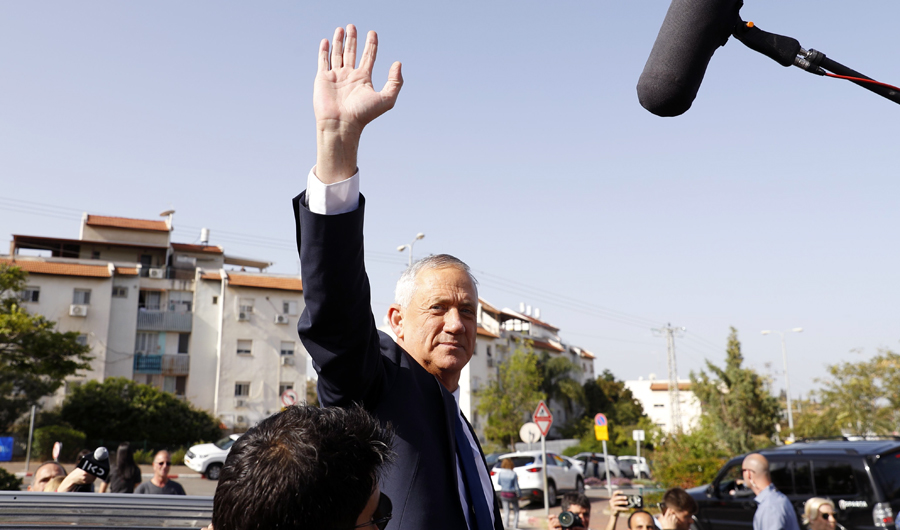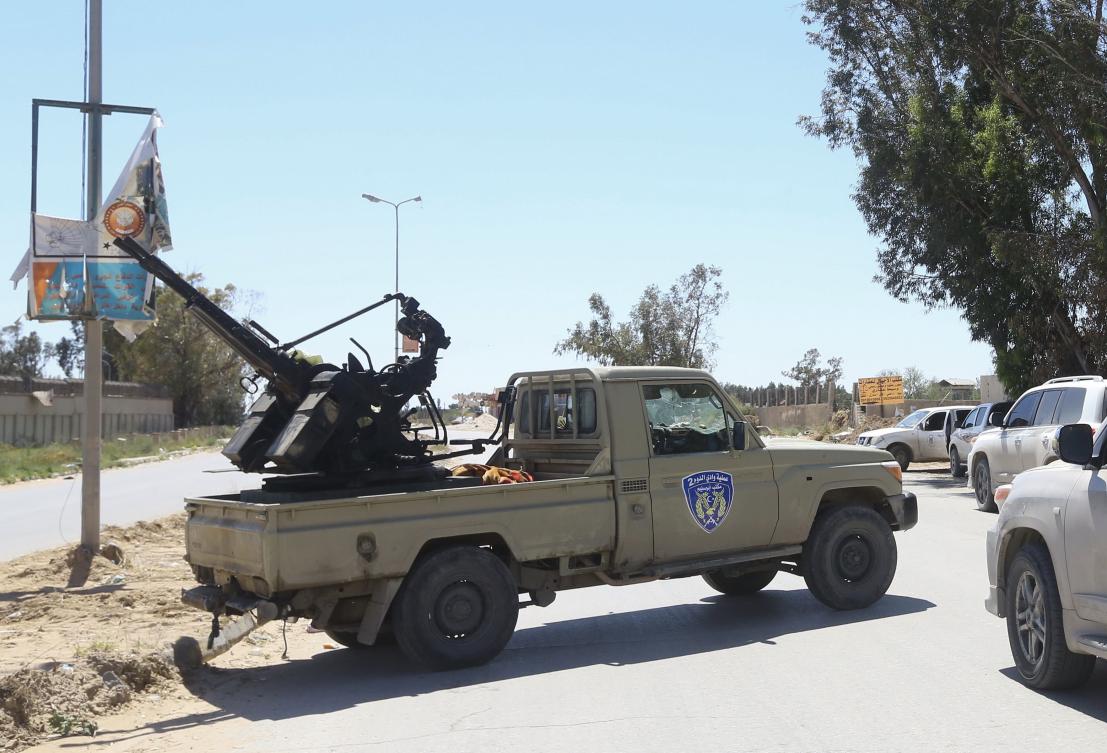Gaza will lose ‘regardless of who wins Israel elections’
GAZA CITY: Palestinian analysts and experts agree that there is no difference between the strongest contenders in the Israeli elections on the Palestinian issue and the relationship with the Gaza Strip.
Even those who have previously supported the “two-state solution” agree on no independent Palestinian state but on a Palestinian “civil administration” for parts of the West Bank after the annexation of large settlement blocs to Israel and the granting of “economic facilities” to maintain calmness in Gaza Strip, and the survival of internal Palestinian division.
Hani Habib, a political analyst, said that the current Palestinian situation provides the greatest service to Israel. Therefore, in the recent rounds of limited military escalation in the Gaza Strip, Israel has shown that it is not interested in launching a broad assault that could contribute to the unification of the Palestinians.
He told Arab News that Israelis in all their political orientations have an interest in maintaining internal Palestinian division. They agree that Hamas should be weakened but not completely eliminated to ensure continued division and disagreement with Fatah and the Palestinian Authority in the West Bank.
Habib explained that the two most powerful Israeli parties in the Israeli elections, Prime Minister Benjamin Netanyahu’s “Likud” and the “Blue and White” alliance led by former chief of staff Benny Gantz, agree on core issues, most notably “separating Gaza from the West Bank.”
A study prepared by the Israeli National Security Center stated that Gaza appears more prominent in the Likud program than in the “Blue and White” alliance program, which focuses on the West Bank, considering that Gaza poses no serious threat to Israel and that “the political battle and the strategic threat are coming in the West Bank.”
Habib added: “I think that the Blue and White Alliance, which classifies itself as a “center left,” is more right-wing than the Israeli right, and adopts strict positions on foreign issues such as Iran, the annexation of settlements and the Jordan Valley to Israel and the adoption of an “economic solution” in Gaza, to prevent an “explosion of situations,” and therefore recent “understandings of calm” will continue regardless of the winner of the elections.
Egypt is leading indirect talks between Hamas and the Palestinian factions in Gaza on the one hand and Israel on the other, resulting in an “undeclared calm.” And the Netanyahu government has begun to implement its terms relating to easing the siege imposed on the Gaza Strip 13 years ago, in return for stopping “coarse tools” such as firing rockets, balloons and nighttime protests.
Adnan Abu Amer, a specialist on Israeli affairs, agrees with Habib that “the military option against Gaza is postponed (for) a while, unless there are developments to be fought, as well as for Hamas and factions that do not want to go to a major military confrontation.”
Abu Amer told Arab News that even Gantz, who was chief of staff during the Israeli war in 2014, realizes that “Gaza has no military solution,” and the generals in his coalition are aware of “what is waiting for the Israeli army in Gaza,” and also fear the “unknown future after Hamas,” such as the absence of the arena in Gaza for militant groups such as Daesh and others.
Based on these convictions, he said, the parties in Israel agree that “the solution in Gaza is economic,” and therefore, regardless of who wins the elections, the trend toward the signing of understandings of calm, in line with the American willingness to put forward the “deal of the century.”
Abu Amer said that Israel wants to achieve economic concessions unless it can achieve the war in Gaza, while dedicating itself to the dream of an independent Palestinian state by annexing settlements in the West Bank, taking advantage of the support of US President Donald Trump.
Ibrahim Al-Madhoun, the director of the Hamas-affiliated Palestine Institute for Strategic Studies, said that Gaza is following the Israeli elections, “especially because of the recent truce understanding between Hamas and Israel … Gaza is waiting to see how Israel will deal with it after the election results.”
Al-Madhoun believes that the winner of the Israeli elections, whoever he is, will be committed to these understandings to calm the Gaza front, because there is a collective Israeli realization in the political and military institutions that any armed confrontation with Gaza will be too expensive.
There is also no major political objective in Gaza, and there is an Israeli focus at the moment on the extension of sovereignty over the West Bank, he told Arab News.

Israelis go to polls in election, as hidden cameras banned after Arab minority complaintsCould Israel’s vote be the end for Netanyahu?



